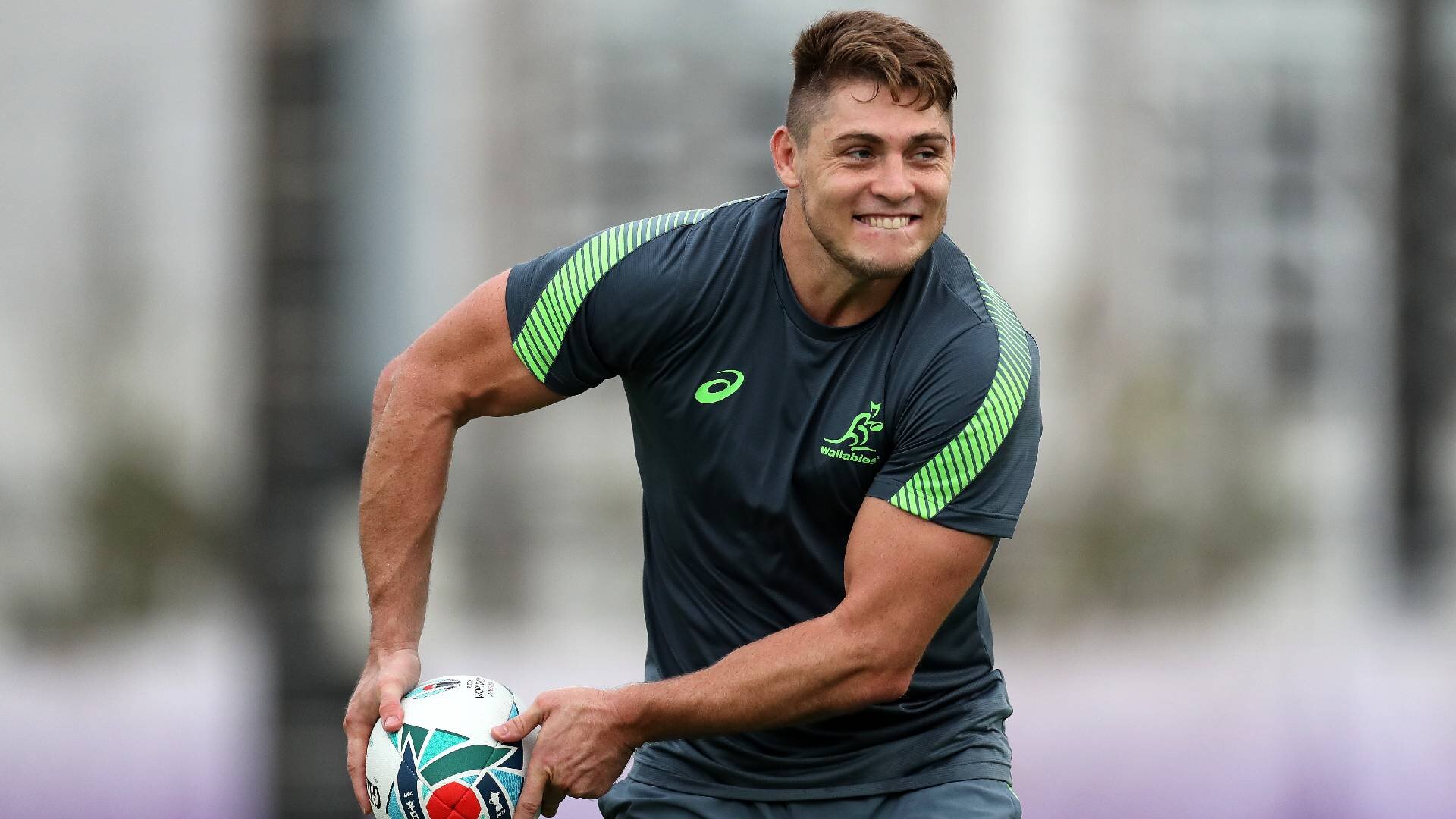'He's a great threat for us' - How James O'Connor has changed the Wallabies for the better

A reformed James O’Connor has sprinkled class on the Wallabies backline, according to Will Genia, who remembers the teenage genius that was lost to Australia for too long.
The 29-year-old’s return from the wilderness after being shown the door in 2013 because of off-field indiscretions has been one of the stories of the year and has captured the attention of international journalists at the Rugby World Cup.
Genia’s admiration for O’Connor is as much around how quickly he has begun producing test standard performances on the field.
It’s something the Wallabies will want more of when he marks accomplished Wales outside centre Jonathan Davies in Sunday’s key pool game in Tokyo.
O’Connor was firing by the end of Saturday’s opening win over Fiji, his relatively small frame having soaked up his share of early collisions before unleashing some elegant touches once Australia established a foothold.
Continue reading below…
It reminded veteran halfback Genia of the class on show even in O’Connor’s early Tests. He described the then-21-year-old as one of the premier players at the 2011 World Cup in New Zealand.
“He was a winger back then so he was a bit more explosive and had the ball in a little bit more space,” Genia said.
“Obviously now playing at 13, he’s not only a ball-runner but he plays as a bit of a ball-player as well.
“I think you saw his impact in the (Fiji) game, he’s a great threat for us all over the park. It’s good to see him actually perform again on the biggest stage of them all.”
Eddie Jones is expecting the United States to provide a tough challenge for his England side in their World Cup meeting in Kobe on Thursday. #RWC2019 #ENGvUSA https://t.co/S0ZZCIWIRj
— RugbyPass (@RugbyPass) September 25, 2019
O’Connor is just the third Australian international to have an eight-year gap between World Cups, after prop Mark Hartill (1987, 1995) and winger Scott Staniforth (1999, 2007).
Flanker David Pocock also has fond memories of the first stage of O’Connor’s career, noting the young back’s ability when he joined the Western Force straight out of school aged 17.
However, Pocock said the greatest achievement is this year’s comeback and the honesty that O’Connor had shown throughout the process.
https://www.instagram.com/p/B2xdncugujE/?utm_source=ig_web_copy_link
Several times the star back has publicly lamented going off the rails and expressed his gratitude for getting a second chance.
“He obviously had some pretty tough personal circumstances,” Pocock said.
“It was a fairly long road with a couple of false starts trying to get back.
“Just to see someone go away, really do their work and turn up with a new perspective on life, a new way of seeing opportunities and want to make the most of them is really exciting.”
AAP
In other news:

































